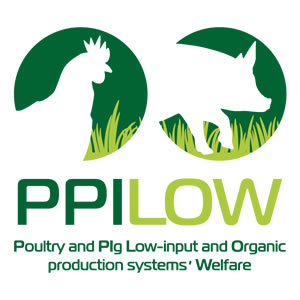PPILOW Romanian National Workshop
The PPILOW Romanian National Workshop entitled “Phytotherapeutic remedies used in swine low input farms, their antiparasitic and antibacterial efficacy” was held on September 15th 2023 in Cluj-Napoca, and led by the University of Agricultural Sciences and Veterinary Medicine Cluj, in partnership with the the Academy of Agricultural and Forestry Sciences “Gheorghe Ionescu-Şişeşti” Bucarest and the Association of pig farmers from traditional Mangalitsa and Bazna breeds. The workshop was an independent PPILOW event, with approximately 60 participants, consisting of: farmers and representatives of the Association of pig farmers from traditional Mangalitsa and Bazna breeds; members of the Academy of Agricultural and Forestry Sciences “Gheorghe Ionescu-Sişeşti” (A.S.A.S.) Bucharest; local and regional policymakers; consumers; professors, researchers, PhD candidates, students, and technicians from USAMVCN; and members of the NPG facilitators, Romania.
The aims of the workshop were: disseminating the information from the PPILOW project within the swine farmer community and among young people; incentivizing the involvement of NPG Romania in developing strategic decisions, strengthening contacts with farmers, and further investigating their needs, to ensure the welfare and health of animals in low-input farms; maintaining ongoing cooperation with academia and researchers specializing in the technology and welfare of swine from low-input farms; to encourage Government support of local breed farmers and specialists, to increase the breed’s overall value as well as to build a strong genetic pool.
The agenda of the USAMV Cluj-Napoca Workshop was as follows: the PPILOW general presentation; establishing the aims of the PPILOW and ROAM FREE projects; two presentation sessions entitled “Phytotherapeutic remedies used in swine low input farms, their antiparasitic efficacy” and “Improved piglet/sow feeding methodology using herbal supplements to limit microbial infectious load”; a poster session for the PPILOW meeting in Perugia. The debate sparked great interest among farmers, generating discussions on: the importance of controlling microbial and parasitic diseases using plants from Romania’s flora; the costs, accessibility, efficiency, and roles required for the transition to organic farming; addressing the concerns over infectious diseases such as classical swine fever and African swine fever, and their consequences on low-input farms in Romania; and the impact of the geopolitical situation generated by the war in Ukraine, and its subsequent energy crisis on pig farming in Transylvania, and nationally.
The participants received a dossier containing informative leaflets about the PPILOW Romania project along with a memory stick with publications from the project and the PowerPoint presentations held during the Workshop.

